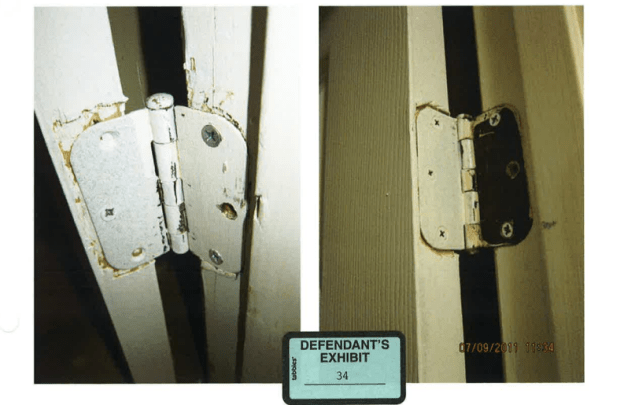
In what’s being heralded as a win for free speech on the Web, a Virginia court has ruled that a woman’s negative review of a home contractor posted to Yelp and Angie’s List may remain unaltered and online.
The decision, issued on December 28 by the Supreme Court of Virginia, lifted a preliminary injunction against Jane Perez, who wrote a disparaging review of Dietz Development, a Washington D.C.-based contracting business. Perez claimed Dietz employees caused damage to her home, stole jewelry, charged her for work that was not completed, and more. “Bottom line do not put yourself through this nightmare of a contractor,” she wrote.
Christopher Dietz, owner of Dietz Development, responded to the negative Yelp review in early December by filing a $750,000 defamation lawsuit against Perez, claiming that her review cost him $300,000 in business. He also sought a preliminary injunction against Perez to prevent her from posting the review on other websites.
Prior to the preliminary injunction hearing, police found insufficient evidence to prove that Dietz employees stole jewelry from Perez’s townhouse. No charges were filed against Dietz. A judge also threw out an earlier lawsuit filed by Dietz against Perez over unpaid bills, on the basis that it lacked merit.
In a hearing on December 5 (PDF), a Fairfax County Judge approved a preliminary injunction against Perez, which mandated that she remove parts of her negative review, and barred her from making certain claims in other reviews.
Following this ruling, public advocacy groups Public Citizen and the American Civil Liberties Union came to Perez’s defense, arguing in a motion submitted to the Supreme Court of Virginia that the preliminary injunction amounted to censorship, and was a violation of Perez’s First Amendment rights. Upon review, the Court reversed the preliminary injunction against Perez, which the groups are trumpeting as a victory for free speech on the Internet.
“The decision confirms the importance of not shutting down public discussion on the Internet just because someone doesn’t like what’s being talked about,” said Paul Alan Levy, an attorney for Public Citizen, in a statement. “Review sites like Yelp are vehicles for the free flow of ideas by helping consumers make informed decisions on how to spend their hard-earned dollars.”
The lifting of the preliminary injunction against Perez does not mean her troubles are over, however, as the court will still decide whether to award damages to Dietz.
Regardless of the final outcome of the case, said Levy in a phone interview with Digital Trends, the reversal of this injunction further protects citizens against zealous lawsuits from criticized companies.
“If it’s too easy for people who are criticized online to go into court and get injunctions against speech, then we’ll have non-meritorious cases brought more often,” said Levy. “And the general public will have less information with which to make sound decisions about which merchants they ought to hire.”
Levy said that, prior to filing the lawsuit, Dietz responded to Perez’s review on Yelp, where other users could see both sides of the situation. “That’s the better approach; that’s the American approach” to settling these kinds of disputes, said Levy.
Yelp maintains that any decision to allow users to share their “truthful experiences” is a win for the service, and further proof that filing lawsuits over Yelp reviews does more harm than good.
“Consumer freedom of speech provides an important public service, protected by law,” said a Yelp spokeswoman in an email to Digital Trends. “Yelp provides a valuable contribution to this dialogue by providing a two-way platform for consumers to share their experiences and for businesses to respond to their customers. Courts have consistently ruled that consumers have the right to share their truthful experiences. As a result, businesses that choose to sue their customers to silence them rather than address their comments, rarely prevail and often bring additional unwanted attention to the original criticism.”
While the courts may not have censored Perez’s comment, Yelp has done its fair share of sanitizing. As of this writing, 65 reviews on the Dietz Development Yelp page have been removed for “violating [Yelp’s] Content Guidelines or Terms of Service.” No additional explanation was given. The vast majority of these reviews gave Dietz Development a one-star rating. Only six reviews remain visible to the public: one one-star review, one two-star review, and four five-star reviews.
Update: Yelp reached out to clarify the reason many of the scrubbed reviews from the Dietz Development page were removed from the site: “Our TOS state that reviews must be about a first-hand experience,” wrote the spokeswoman in an email. “Many of the reviews that have been removed from Dietz’s business listing for violating our TOS were removed after the story gained media attention because they were not first-hand experiences (but instead, people voicing their personal opinion of the situation).”
According to Levy, who spoke with Perez’s current attorney, Perez may sue Dietz for breech of contract because “she had to pay other contractors” to fix the problems she says Dietz’s employees caused at her townhouse.
To see the full court documents, along with photo evidence pertaining to Perez’s negative review, see Public Citizen’s repository here. For further reading about the implications of this case for the rest of us, see Levy’s blog post here.
Update: Additional contextual information has been added, including information about Perez’s claims of jewelry theft, and an earlier lawsuit filed by Dietz against Perez over unpaid bills.


